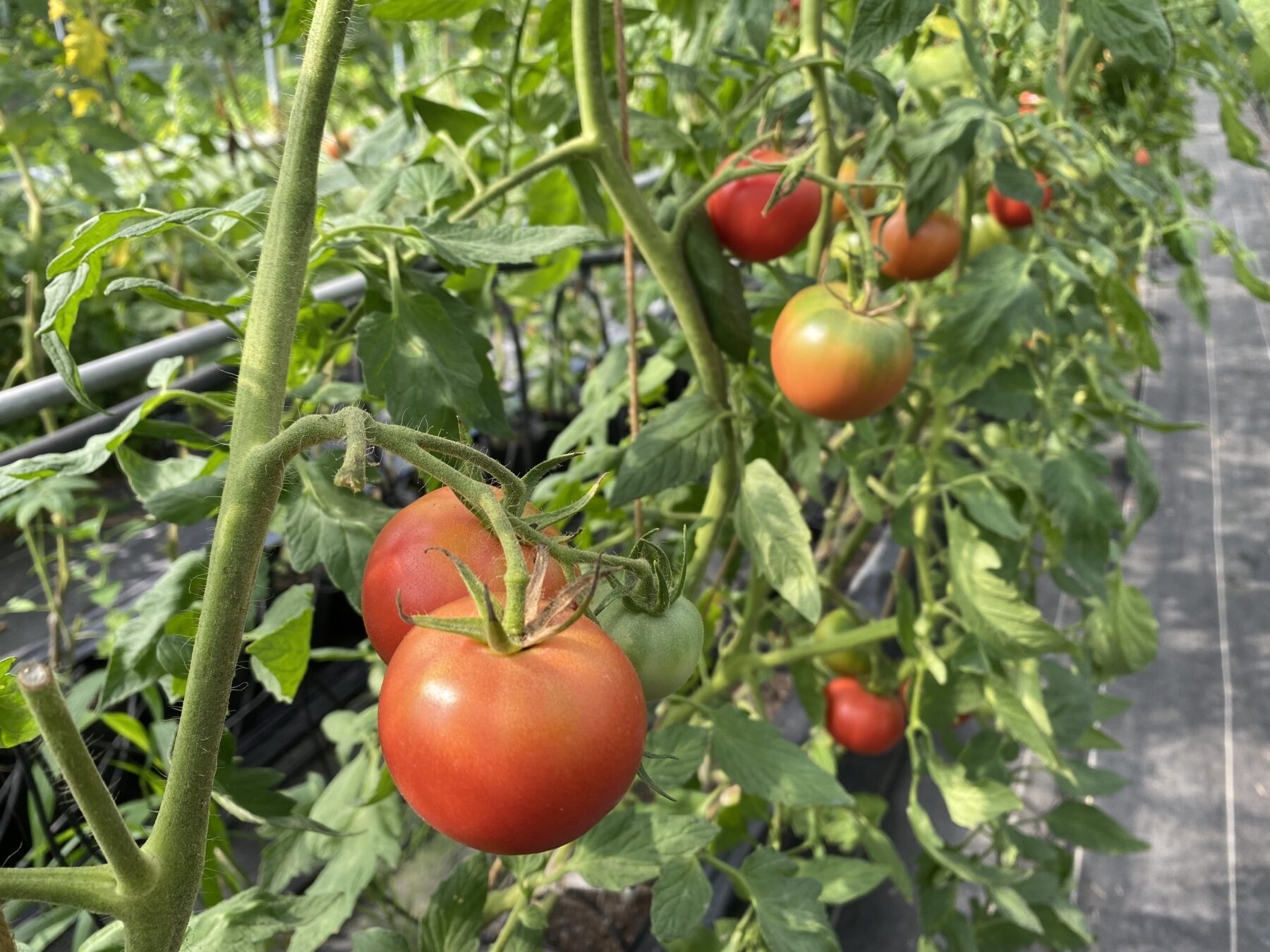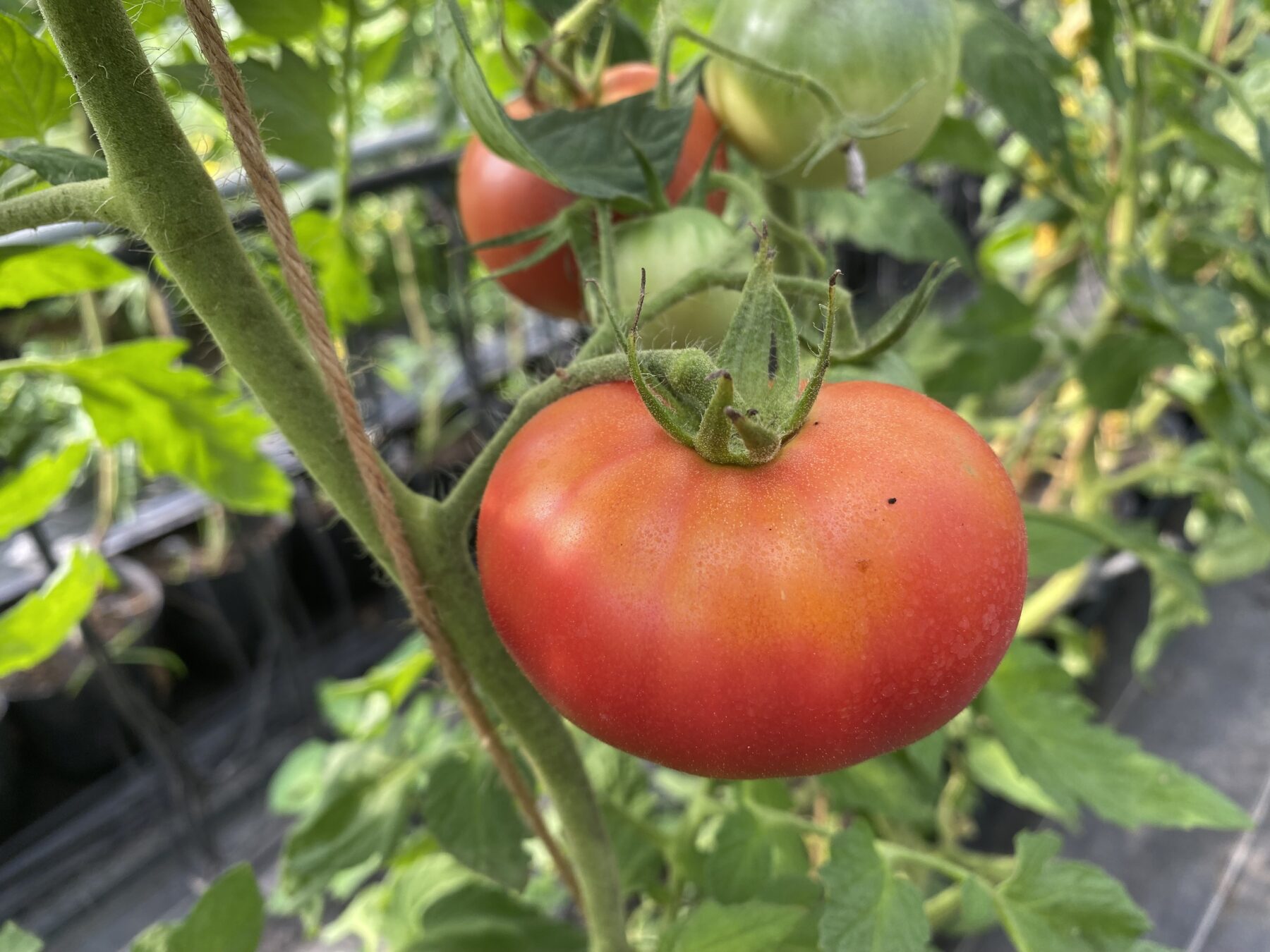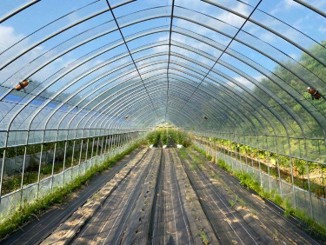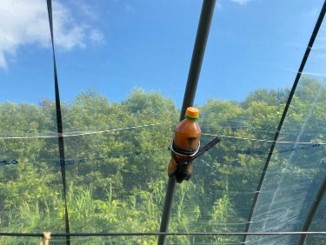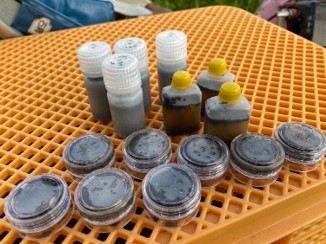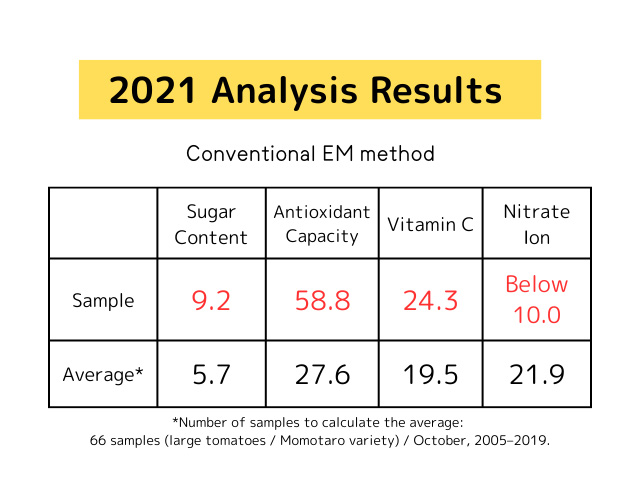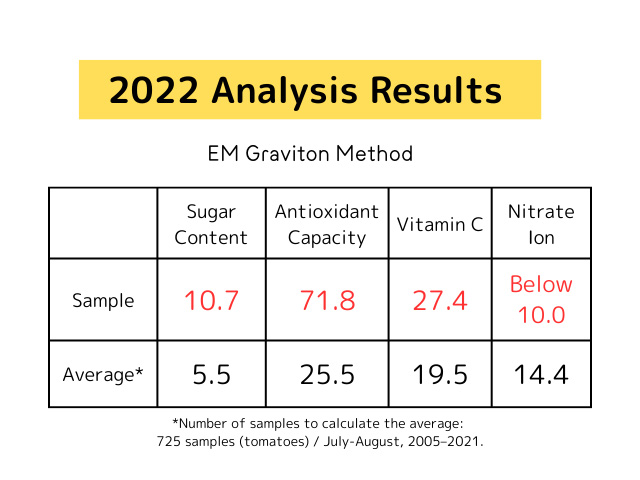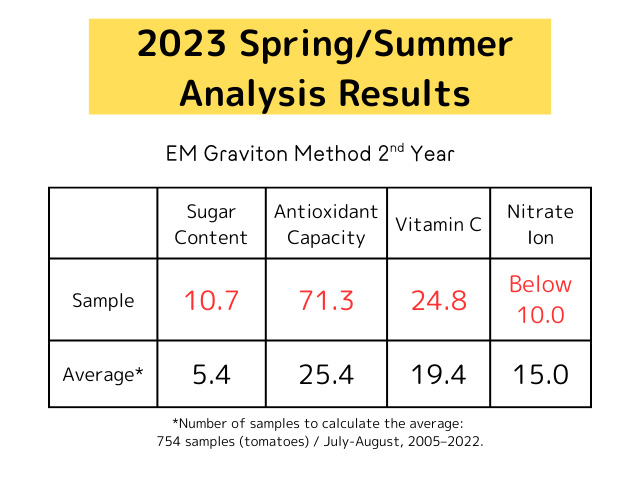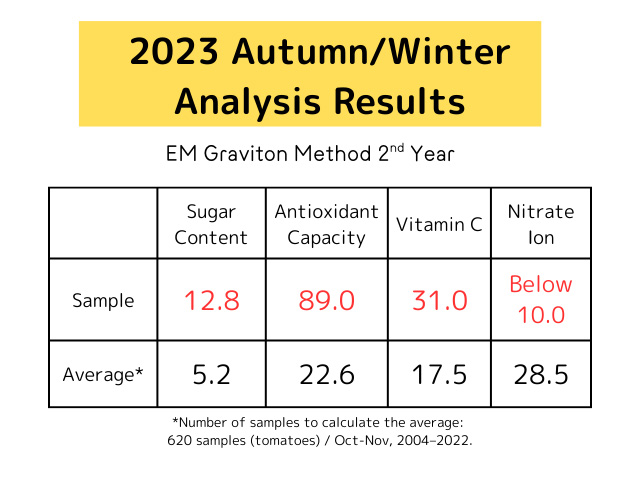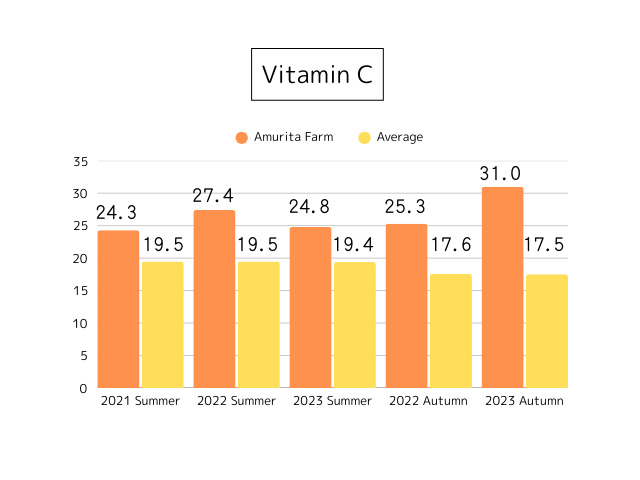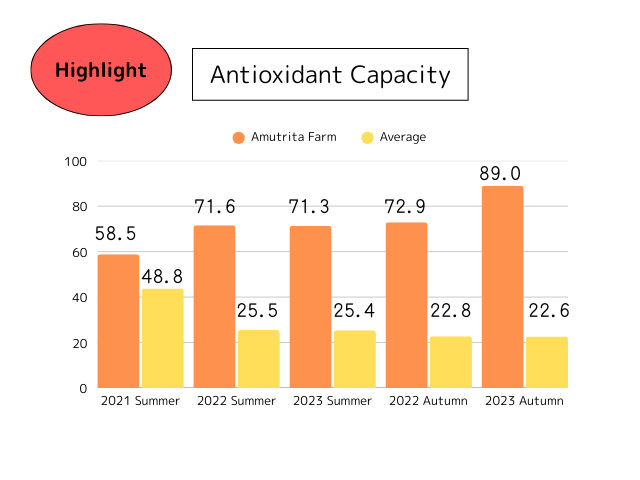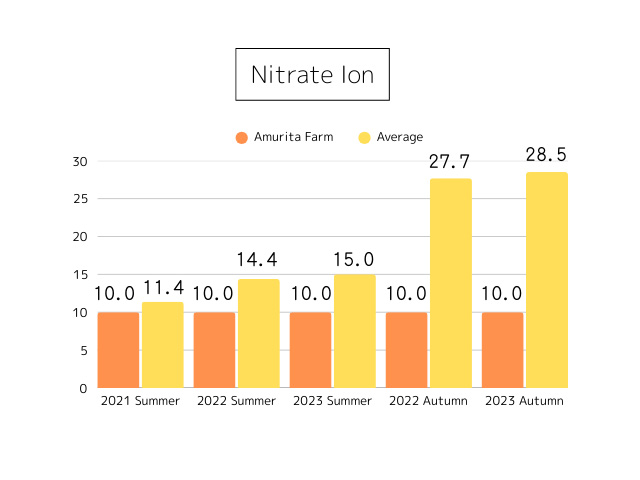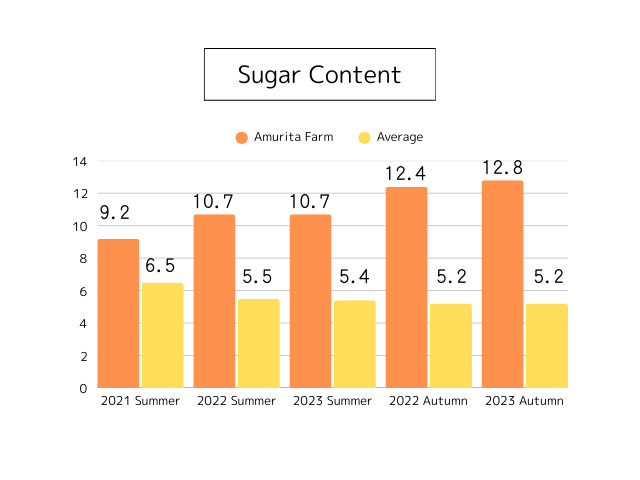
Amurita Farm: Wellness for Body and Soul Based on a “Good for All” Philosophy
From award-winning produce to remarkable resilience; see how Amurita Farm is redefining agriculture.
Overview
Located in Niseko Town, Hokkaido, Amurita Farm was founded in 2014 on a mission to grow nutrient rich, natural produce that energizes the body and soul.
Named after “Amrita,” the Sanskrit word for the “divine drink of immortality”, the farm embraces the blessings of the earth while integrating ethical and sustainable farming practices.
Over a decade, this sustainable agricultural venture has transformed reclaimed mountain land into a vibrant farm with six greenhouses and a sorting facility, now producing seasonal vegetables including asparagus, tomatoes, and pumpkins.
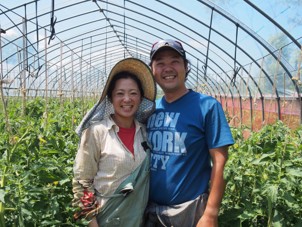
Amurita Farm Owners: Mr. and Mrs. Saito
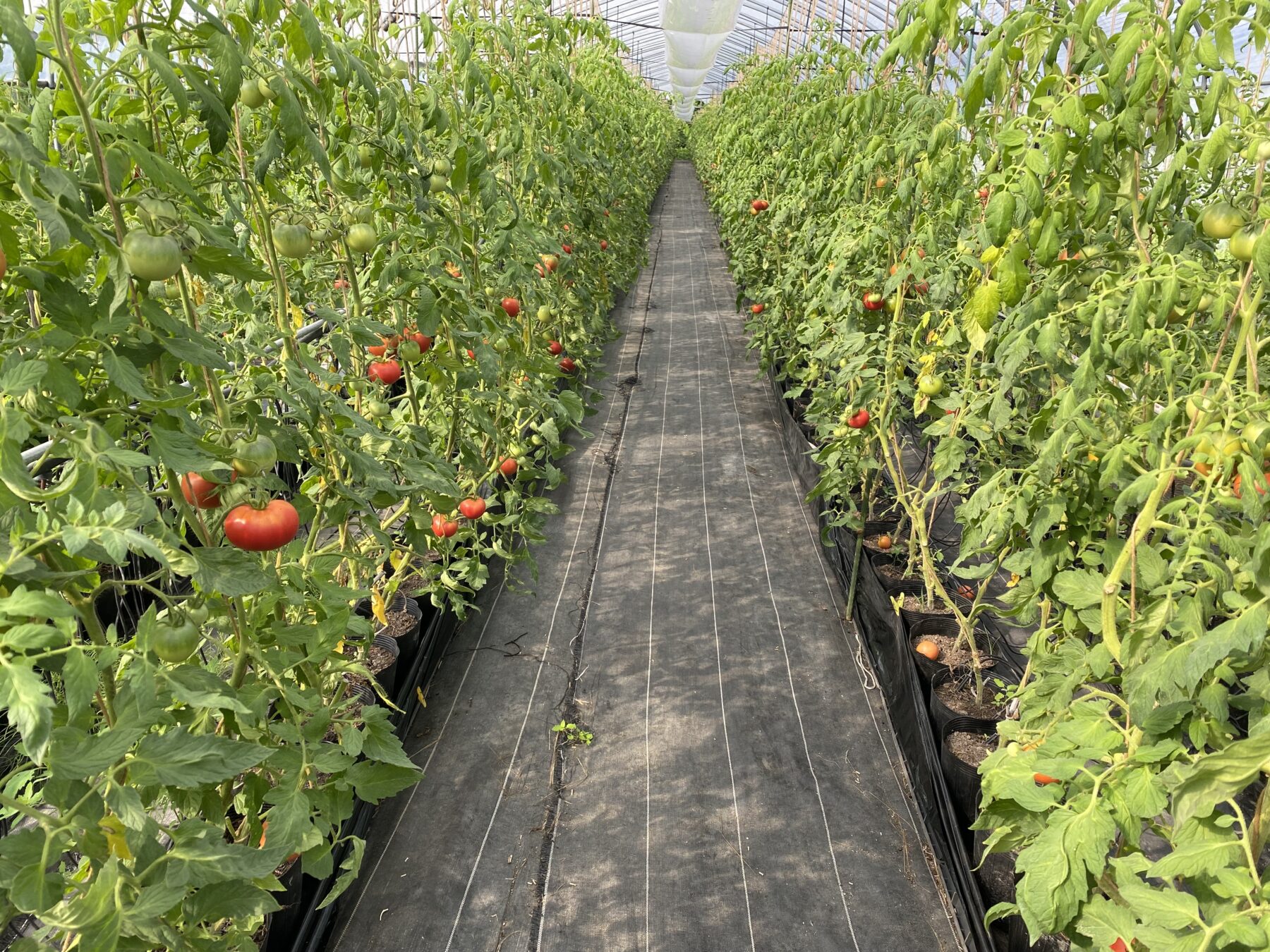
Tomato greenhouse
Amurita Farm Philosophy
Amurita Farm is guided by the Japanese principle of “Sanpo Yoshi” meaning: “good for all: the seller, the buyer, and society.”
Their vision extends beyond profitability, focusing on nurturing harmony between people, crops, soil, microorganisms, and the energy connecting them through mindful communication.
The farm believes that implementing EM Technology most effectively requires an approach based on love, gratitude, and joy.
Challenges
- Amurita Farm is located on land that was originally an untouched, forested mountainside.
- The team began by manually clearing the area and gradually building infrastructure suitable for organic farming.
- Due to its location at the lowest elevation in the Niseko basin, the farm receives runoff water and air from nearby conventional farms and mountain resorts. This geographical factor requires attention to environmental impact and resource management.
- In 2023, Hokkaido experienced record-breaking heat waves and severe flooding, which caused significant damage to the farm’s tomato crop.
EM Application
Sustainable Soil and Water Quality Management:
Amurita Farm has introduced EM Technology to enhance sustainability and crop vitality through:
- Biotope Creation:
A natural biotope ecosystem was built on the farm to observe and harmonize the surrounding environment.
- EM Water Treatment:
Water from a reservoir in the biotope undergoes filtration through a specialized system incorporating EM Gravitron Charcoal and EM Ceramics, enhancing its energetic quality before irrigation use. The farm avoids using river water directly.
- EM Fertilization:
The farm uses EM Bokashi and homemade EM fermented liquid fertilizer, applied to nurture soil naturally without chemical pesticides, herbicides, or synthetic nutrients.
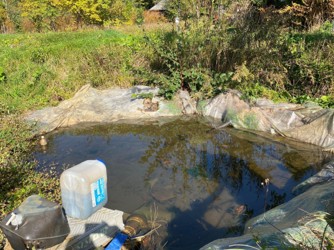
Biotope's reservoir using EM Technology
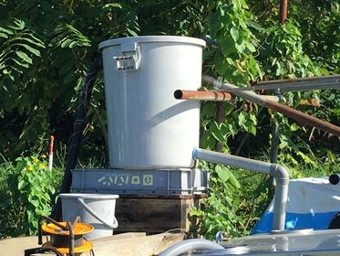
Special EM filtration system
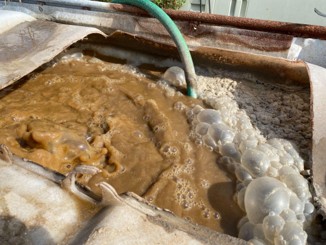
EM fermented liquid fertilizer
- EM Rectifying Barrier:
In 2022, the farm installed EM Rectifying Barriers throughout the greenhouses.
They attached EM bottles and EM Gravitron Charcoal attached to the greenhouse pillars and extended through the facility lines. These tools help create a balanced energy field, improving harmony between plants and the environment.
- EM Gravitron Charcoal:
Inspired by Terra Preta concepts, the farm added EM Gravitron charcoal to the soil just before devastating heat waves struck tomato cultivation in 2023.

Making EM charcoal
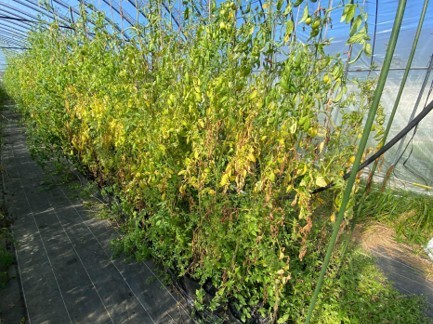
Plants damaged by heat waves
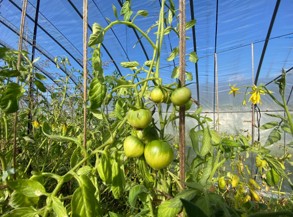
Tomatoes that bore fruit again after the revival experiment.
Effects and Results
The integration of EM Technology, natural farming, and deep care for the environment has produced:
- Award-Winning Nutritional Value:
Their produce demonstrated remarkable nutritional improvements, with tomatoes showing measurable increases in sugar content and antioxidant levels. In the “Healthy & Delicious Produce Contest” hosted by the Japan Organic Farming Association, they earned top prizes in both spring-summer and autumn-winter categories.
- Consistent Excellence:
By 2024, Amurita Farm achieved this distinction for the third consecutive year since 2021, with contest organizers describing their accomplishment as “a record hard to beat” and calling them “legendary in the making.”
- Disaster Mitigation:
During a flooding event, water infiltrated 23 meters into Greenhouse No. 3 (without EM barriers), while Greenhouse No. 4 (with EM barriers) limited water intrusion to just 13 meters. “Thanks to the EM barrier, I experienced firsthand how a major disaster could be reduced to a smaller one,” said owner Mr. Saito.
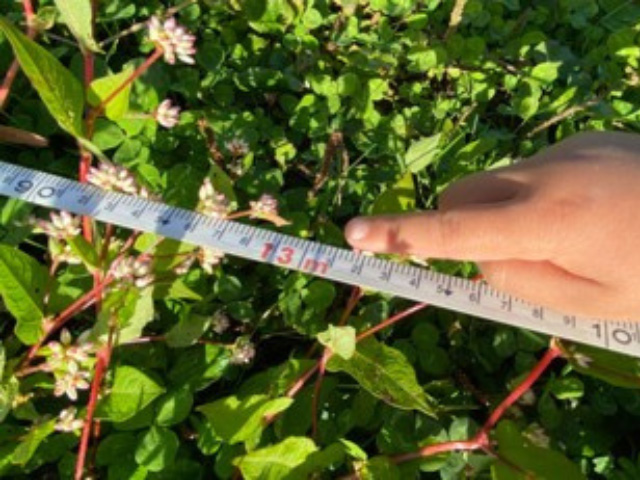
Greenhouse No. 4 (with EM barriers) limited water intrusion to just 13 meters.
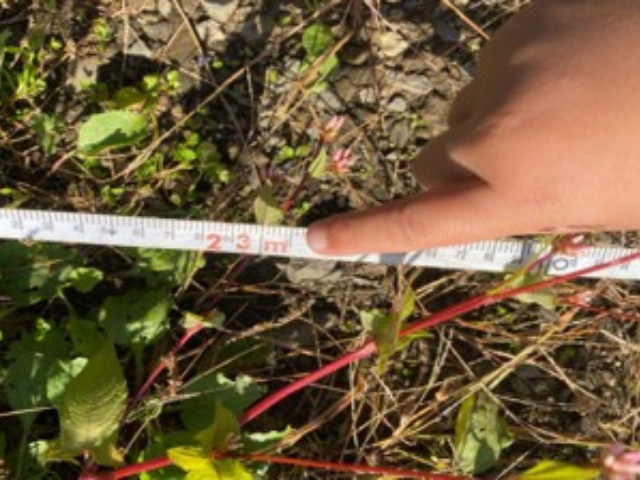
Water infiltrated 23 meters into Greenhouse No. 3 (without EM barriers).
Further Challenges: Toward an EM Universal Village
- Educational Hub:
The first phase includes a seminar house offering hands-on EM organic farming workshops, especially designed for parents and children.
- Community Philosophy:
As they state, “Nation-building starts with people. By connecting good food, good places, and good-hearted people, we create spaces where everyone can flourish. Thanks to EM Technology and the power of community, Amurita Farm is turning that vision into reality.”
- Expansion Plans:
Future development will incorporate lodging and dining facilities, providing visitors with a more immersive experience of farm life.
- Continuing Mission:
Amurita Farm continues to evolve in harmony with nature, sharing nourishing produce and innovative approaches to sustainable agriculture. Guided by their “Good for All” philosophy at the community level, they foster not only healthy food production but also a more sustainable lifestyle for everyone involved.
2025.4.17 Updated
